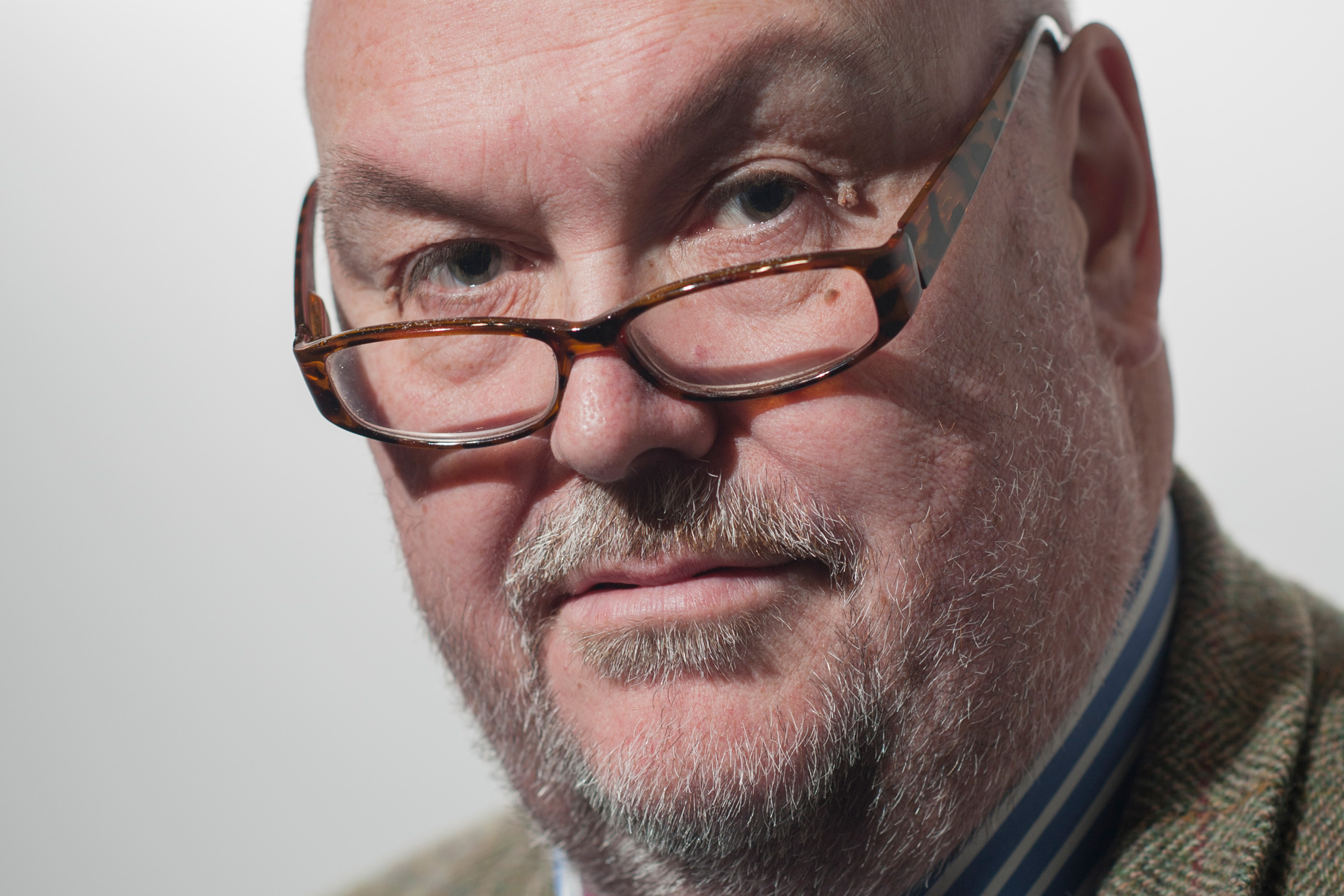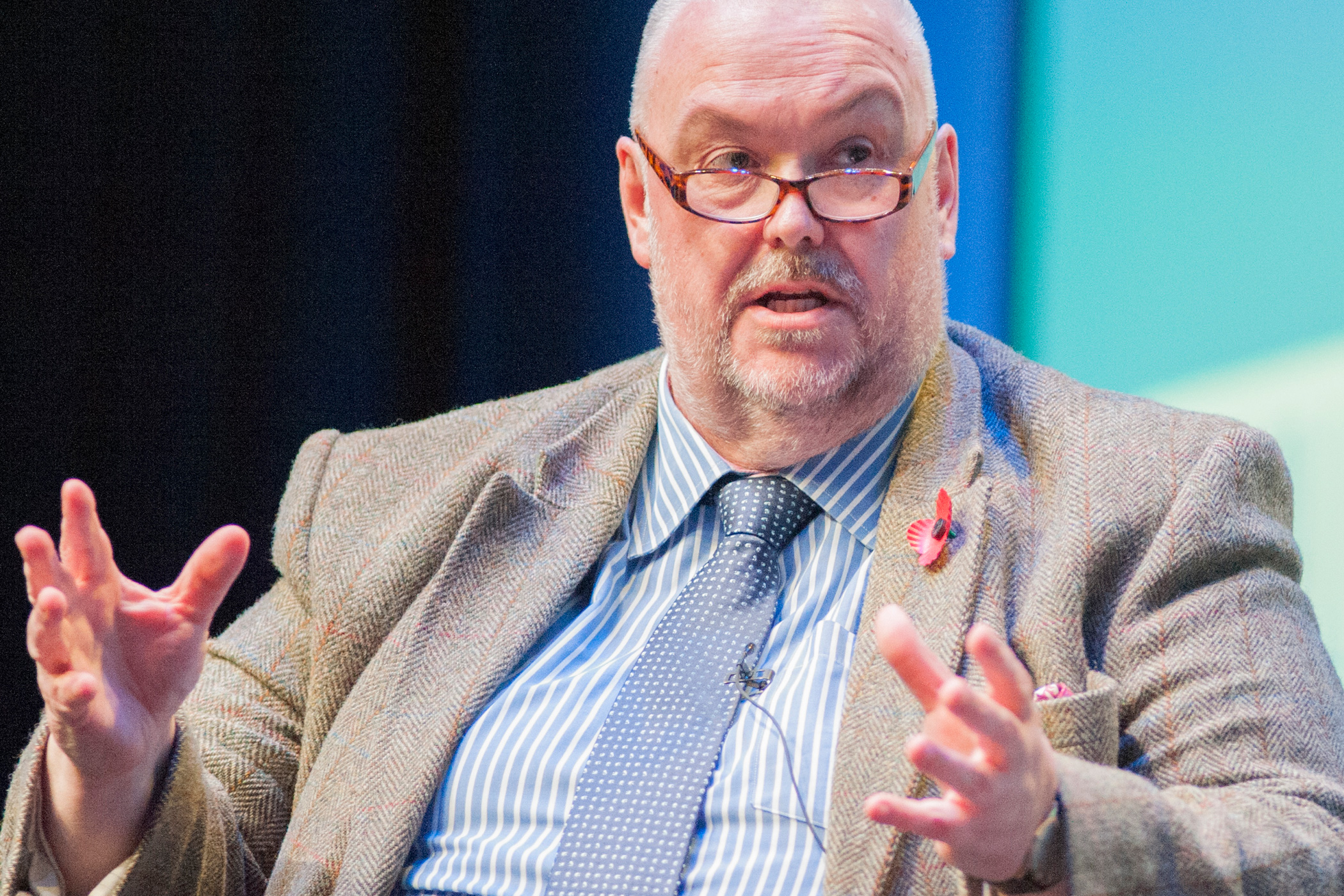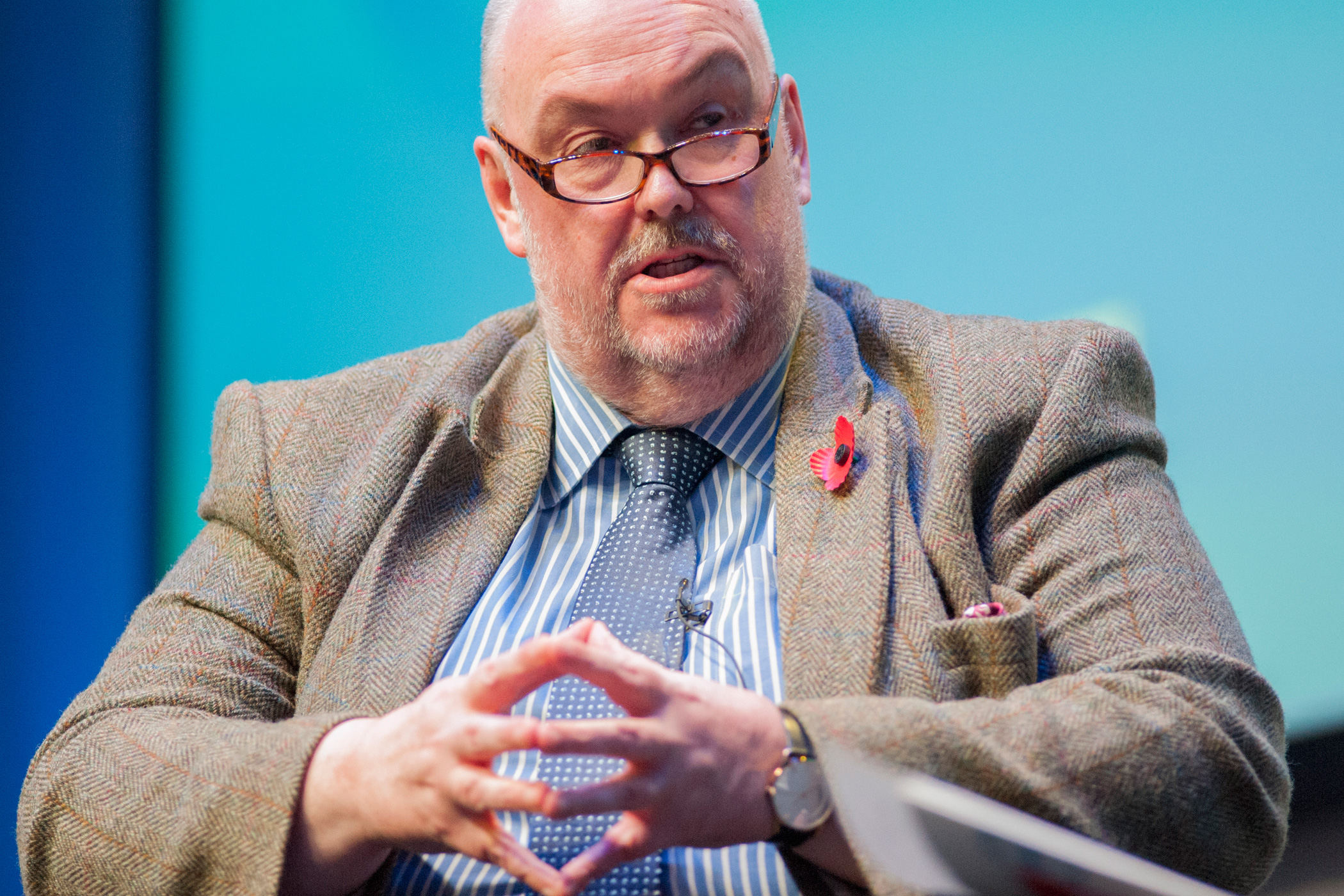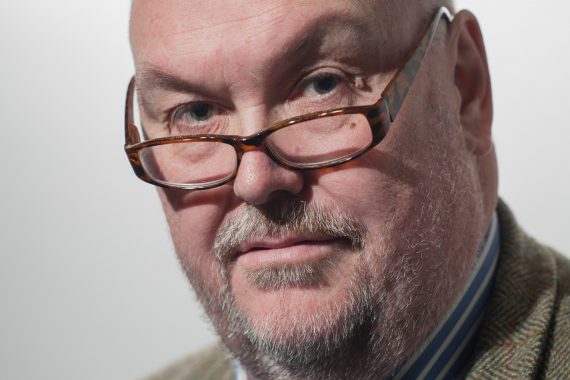Paul Gray may be the man responsible for the NHS in Scotland, but he is no remote civil servant. Far from it; he spent the afternoon at the Pulse Live meeting in Glasgow walking around, happily talking to any GP who recognised him.

paul gray 2 by martin hunter 3×2
Contrast this with his slightly more aloof counterpart in England, Simon Stevens, and you get a sense of how the relationship between the health service and general practice differs in Scotland.
Pulse editor Nigel Praities quizzed Mr Gray on stage as the new Scottish GP contract was about to break, getting his views on how to attract new GPs to Scotland and also on England’s health secretary Jeremy Hunt.
There’s £500m promised for primary care in Scotland, and half of that in support of general practice. I wondered if you see this as enough when there are record numbers of practices that are considering closing?
Well, no sum of money will ever be enough for any developed health system in any developed country. There would always be more that could be spent, so the answer is more about how we spend it.
It’s all very well to say that general practice is central to everything that we do, that 90% of first contact for patients with the health service is through general practice. But these are words. The answer is, what you are going to do about it. And I think the £500m is, in a sense, an important definition of what we’re going to do about it.
Well, it’s by 2020, so the allocation has started already with some funding. And what I’m not going to do is give a standard civil service speech about how we’ve invested X and Y, because I think GPs are a bit too clever to be taken in by that.
But isn’t there an urgent need now? Shouldn’t that money be allocated now, rather than waiting until 2020?
We have invested money, and we are investing money, in the things that we think need most urgent attention, including the development and transformation of primary care. But I think we also have to invest trust and confidence in general practice. One of the things that I’m very conscious of is the degree to which GPs are trusted in their communities. We have to develop and demonstrate that trust as well.
I’m sorry to dwell on the negative, but let me just list a few facts: one in four practices has at least one vacant GP position, nearly three-quarters of those positions have been open for six months and in Edinburgh 40% of practices have closed their lists. How can this be resolved?
It can’t be resolved in a minute, and trying to resolve it very quickly, even by throwing money at it, would be the wrong answer. There are some practices and GPs under intolerable pressure.
More GPs are needed. The narrative I think we can build is that we are confident about investing in general practice. We believe it is and remains central to the successful delivery of the transformation we know we need.
We know general practice is trusted, and we believe we’ve been able to do a proper, adult negotiation on contractual terms that we can offer to GPs. We feel that we are putting forward something that demonstrates confidence in general practice in a way that should attract people in, and also, I trust, encourage people to stay.
That will not present an overnight solution, and it would be folly for me to pretend that it would.
There are still gaps in terms of increasing GP trainees, so how do you think we can tempt people into training?
The fill rates for GP trainee places have been going up, I think, since 2014, so something positive is happening. I think we can tempt people into general practice by encouraging them to understand not just the challenge but the variety of the role. So we use various terms – and it will be interesting to get what the audience thinks about them – to describe GPs.
We are confident about investing in general practice
GPs hold complex, undifferentiated risk. They are the senior clinical leader of multidisciplinary teams in the community. I hear the term ‘expert generalist’ used. You have to be able to turn your hand to a lot of different things very quickly, and be able to have an impact. So general practice to me is a very interesting role as well as a challenging and demanding role.
So there are so many positive things about general practice, which I think are good selling points. Scotland has selling points; it’s a good place to live. But the challenges are real nevertheless.

paul gray 3 by martin hunter 3×2
And so moving on to changing the narrative, what are your objectives for the new Scottish GP contract?
A core objective is that GPs know that we have confidence in them and that they are valued. If there was only to be one objective, that would be it, but there are many. I think some have to do with removing hindrances of previous contractual arrangements.
I think there’s a key objective about flexibility and about ensuring GPs are appropriately remunerated for the work they do, also for workload.
I particularly welcome the way we’ve been able to approach that in discussion and mature negotiation, rather than in a top-down imposition of terms, which I don’t think would work so well.
It must be interesting for you to look over the border and see what is happening in England –and you are Scotland’s equivalent of Simon Stevens. What do you think when you look at his plans?
I think is that running a country’s health service is really quite difficult, and so my starting point is never to criticise my colleagues who run other health systems.
However, let me tell you what I think I appreciate about the way things are done in Scotland. I think we have a genuinely respectful relationship with clinicians, and I want to maintain that. That includes general practice but goes far beyond it. I do not believe it is good practice simply to impose on people. I think it is much better if you can negotiate and agree. I also think it’s possible for adults to disagree, so it’s not that I believe we always have to agree about absolutely everything in order to have a productive relationship.
The one area I think – and I’m not comparing us with anyone in this – the area where I think we remain weak is on getting the patient perspective. That ability to have a mature conversation with the public about how services might be designed and delivered I think is something that we’re reaching for but haven’t completely grasped.
I do not believe it is good practice simply to impose change; we should talk and agree
Audience question: What plans are there to make patients’ expectations and demands realistic and proportionate to the resources available?
There are a few things that I think are important. One area is prescribing, where there are demands and expectations. We can’t afford, in a moral and ethical sense, to provide treatment that is costly and ineffective, because we’re thereby depriving other people of treatment that they could have, by skewing our decisions towards things that are highly costly and on a clinical evidence base not effective.
It’s up to us as advisers to ministers and ultimately accountable to parliament, to make sure that we put in front of politicians the evidence-based advice about what works and what doesn’t.
Please can you speak with Jeremy Hunt?
We had a very interesting chat.
Really? What did he say?
I can’t remember!

paul gray 4 by martin hunter 3×2
Audience question: Two months ago, we handed back our GMS contract. My concern is, by the time this new contract is adopted and bedded in, how many more practices will have fallen by the wayside, and will general practice in its current form be sustainable at all?
First, I’m very sorry to hear that. I believe there is a sustainable future for general practice, but I do recognise that some practices, right now, are facing exactly the pressures you’ve described.
I believe the contract that we’re about to propose will do what it can to resolve some of the issues. It will not resolve all of them perfectly, and certainly not all in six months. But I want to repeat the point that the investment we’re talking about is not all waiting until 2020. It’s starting now and it’s growing. And I wonder too if there is something that I should draw from this conversation about the kinds of conversations we need to have as the new contract is implemented, about what we should be doing in the very near term to strengthen practices that may just be at that tipping point.
There may be some things we should think about nationally to try to sustain general practice during a period of transition. Maybe I should make sure that by 2020 there is still a general practice for us to connect with.
CV: Paul Gray
Age 55
Education Left school aged 16
Career
2005-2007 Director, primary and community care, NHS Scotland
2007-2009 Director, HR and corporate services, Scottish Government
2009-2010 Director general, rural affairs, environment and services
2010-2013 Director general, governance and communities, NHS Scotland
2013-present Director, general health and social care and chief executive, NHS Scotland
















